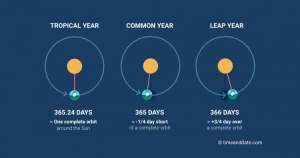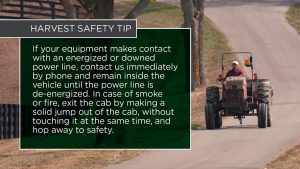In Jackson County, Florida Highway Patrol has seen two fatal accidents involving deer in the last two months. Troopers say car crashes with deer or animals are common in Northwest Florida. According to the National Highway Traffic Safety Administration, about one million car accidents involving deer happen each year, killing about 200 people. In Washington County alone, troopers say one in six accidents involve hitting an animal.
Drivers should be aware and attentive when driving where deer are known to cross. “If you’re driving on a four-lane highway, then I would recommend that you stay on the inside lane as opposed to the outside lane if you’re in a rural area where you think you might encounter deer. I would recommend you don’t do anything to startle the deer,” said Lieutenant Robert Cannon, the public affairs officer for the Florida Highway Patrol.
And when asked what if the worst happens and a deer does run in front of your car? Lieutenant Cannon said “Honestly what I would recommend is that you don’t brake, you continue to drive through the deer. Your safety comes ahead of the animal.”
Below are 7 tips to help you know what to do when driving and a deer comes in contact with your vehicle or trying to avoid a deer contacting your vehicle.
1.If a collision is inevitable, if you get the proverbial “deer in the headlights” look from a deer and you know you can’t stop, plow through without hitting the brakes. It is intuitive to want to stop, but often at highway speeds, it cannot be done. Braking will dip the front end of the vehicle and increase the chances the deer will come up the hood and through the windshield. 2. Pay attention to deer crossing signs. 3. Stay alert if you spot a deer. Deer tend to travel in packs – so if you see one deer, slow down and proceed with caution. Even if you spot a deer on the side of the road or surrounding areas, remember that there could be others about to cross your path. 4.Don’t be afraid to use your horn. Animals have a tendency to run when you really lay on your horn, which can often make them get in gear and move. 5. Don’t swerve to avoid hitting a deer. Do not swerve to avoid a deer collision. By swerving you put yourself at risk for a worse collision with another vehicle or running off the road. Swerving often leads to hitting a fixed object, especially a tree. 6. Get comprehensive coverage for your car. Did you know that physical damage to your car as a result of something other than a collision with another vehicle might not be covered by standard car insurance? With comprehensive car insurance, you will receive additional coverage and protection for car accidents involving animals. 7.Be cautious while driving during dusk or dawn. Deer are most active during sunrise and sunset. Ensure that you and your passengers are wearing seat belts at all times, even in the back seat, just in case you have to make a sudden stop. Use your high-beam headlights when there are no oncoming cars. Deer are hard to see early in the morning and at dusk, your bright lights will help pick up a deer’s eye to give you advanced warning time.
Drive safe!








